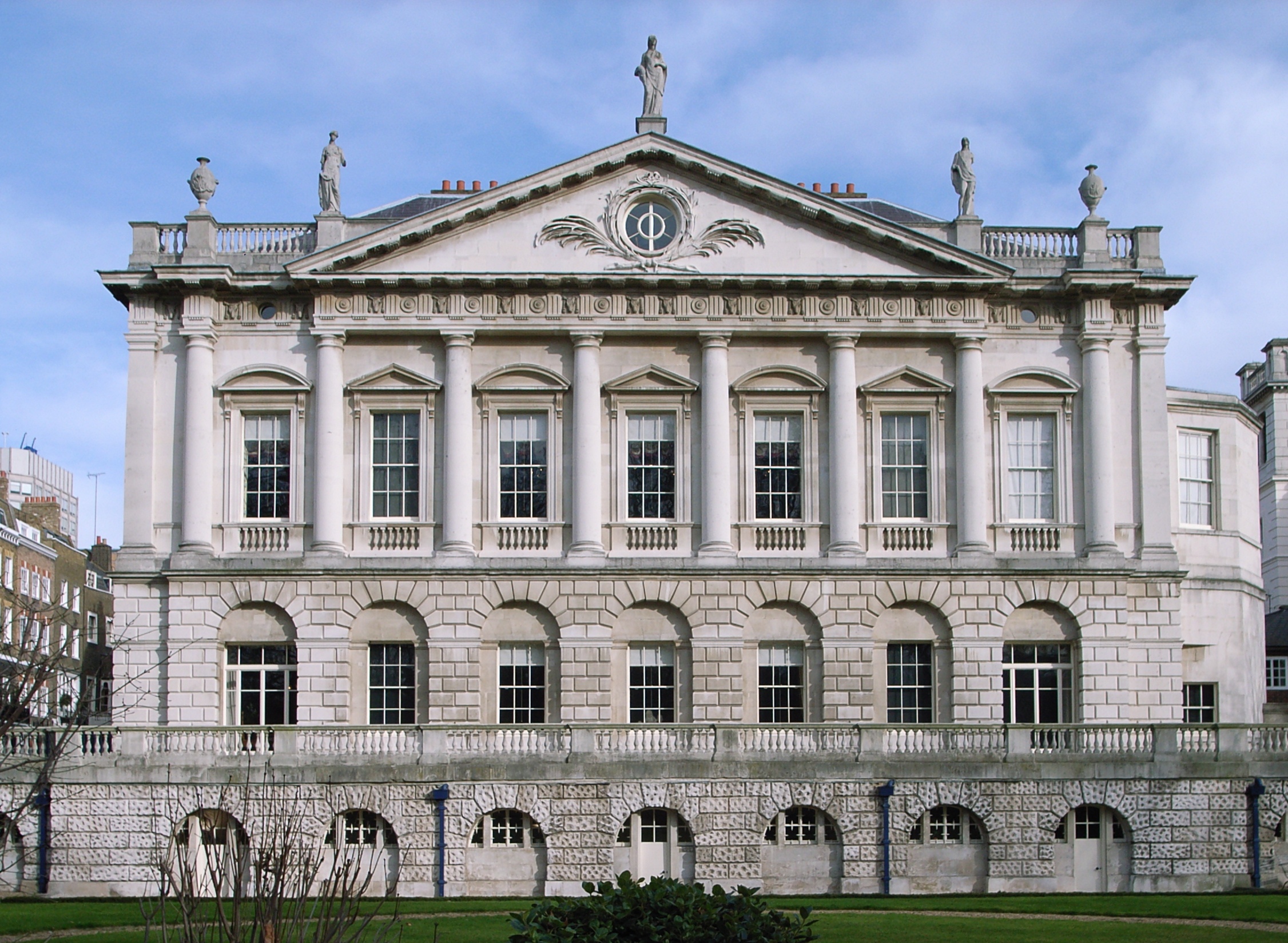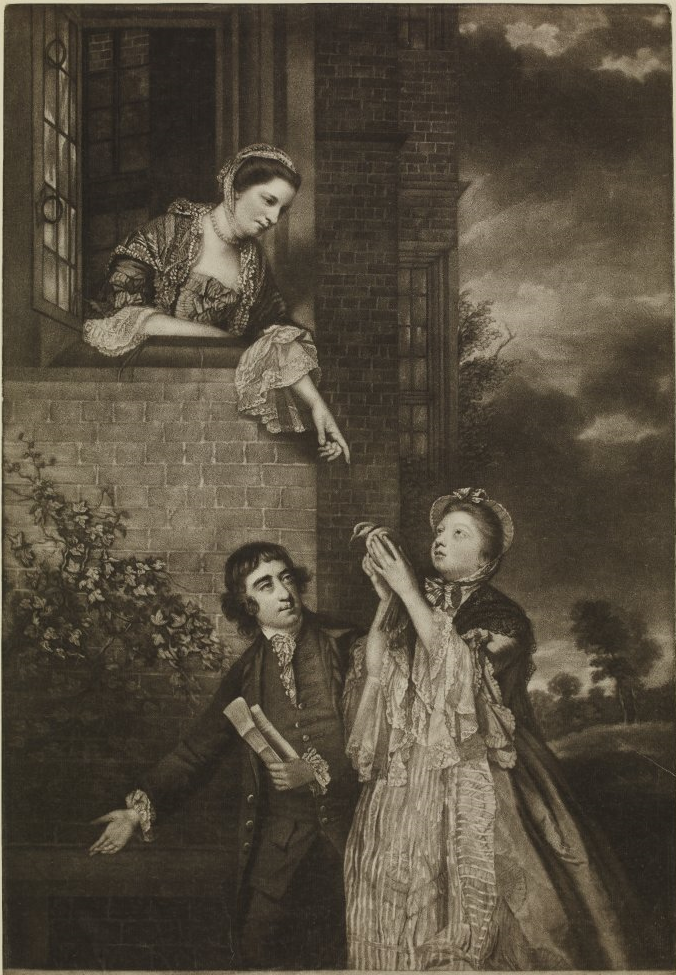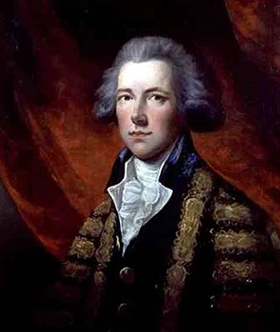|
John Spencer, Viscount Althorp
John Charles Spencer, 3rd Earl Spencer, (30 May 1782 – 1 October 1845), styled Viscount Althorp from 1783 to 1834, was a British statesman and abolitionist. He was Chancellor of the Exchequer under Lord Grey and Lord Melbourne from 1830 to 1834. Due to his reputation for integrity, he was nicknamed "Honest Jack". Family and early years His father George Spencer, 2nd Earl Spencer had served in the ministries of Pitt the Younger, Charles James Fox and Lord Grenville, and was First Lord of the Admiralty (1794–1801). George Spencer was married to the eldest daughter of Lord Lucan. Their eldest son, John Charles, was born at Spencer House, London, on 30 May 1782. In 1800, after Harrow, he took up his residence at Trinity College, Cambridge, and for some time applied himself energetically to mathematical studies; but he spent most of his time in hunting and racing. He was appointed a deputy lieutenant of Northamptonshire on 5 June 1803. In 1804, he entered parliament as ... [...More Info...] [...Related Items...] OR: [Wikipedia] [Google] [Baidu] |
The Right Honourable
''The Right Honourable'' (abbreviation: The Rt Hon. or variations) is an honorific Style (form of address), style traditionally applied to certain persons and collective bodies in the United Kingdom, the former British Empire, and the Commonwealth of Nations. The term is predominantly used today as a style associated with the holding of certain senior public offices in the United Kingdom, Canada, New Zealand, and, to a lesser extent, Australia. ''Right'' in this context is an adverb meaning 'very' or 'fully'. Grammatically, ''The Right Honourable'' is an adjectival phrase which gives information about a person. As such, it is not considered correct to apply it in direct address, nor to use it on its own as a title in place of a name; but rather it is used in the Grammatical person, third person along with a name or noun to be modified. ''Right'' may be abbreviated to ''Rt'', and ''Honourable'' to ''Hon.'', or both. ''The'' is sometimes dropped in written abbreviated form, but is ... [...More Info...] [...Related Items...] OR: [Wikipedia] [Google] [Baidu] |
George Spencer, 2nd Earl Spencer
George John Spencer, 2nd Earl Spencer, (1 September 1758 – 10 November 1834), styled Viscount Althorp from 1765 to 1783, was a British Whig politician. He served as Home Secretary from 1806 to 1807 in the Ministry of All the Talents. He was also the father of the Venerable Father Ignatius of St Paul, a Roman Catholic convert to the priesthood. Background and education Lord Spencer was born at Wimbledon Park House, London, the son of John Spencer, 1st Earl Spencer, and his wife Margaret Georgiana Poyntz, daughter of Stephen Poyntz, and was baptised there on 16 October 1758. His godparents were King George II, the Earl Cowper (his grandmother's second husband) and his great-aunt the Dowager Viscountess Bateman. His sister Lady Georgiana Spencer married the Duke of Devonshire and became a famed Whig hostess. He was educated at Harrow School from 1770 to 1775 and he won the school's ''Silver Arrow'' (an archery prize) in 1771. He then attended Trinity College, Cambridge ... [...More Info...] [...Related Items...] OR: [Wikipedia] [Google] [Baidu] |
British House Of Commons
The House of Commons is the lower house of the Parliament of the United Kingdom. Like the upper house, the House of Lords, it meets in the Palace of Westminster in London, England. The House of Commons is an elected body consisting of 650 members known as members of Parliament (MPs), who are elected to represent constituencies by the first-past-the-post system and hold their seats until Parliament is dissolved. The House of Commons of England began to evolve in the 13th and 14th centuries. In 1707 it became the House of Commons of Great Britain after the political union with Scotland, and from 1801 it also became the House of Commons for Ireland after the political union of Great Britain and Ireland. In 1922, the body became the House of Commons of the United Kingdom of Great Britain and Northern Ireland after the independence of the Irish Free State. Under the Parliament Acts 1911 and 1949, the Lords' power to reject legislation was reduced to a delaying power. The gove ... [...More Info...] [...Related Items...] OR: [Wikipedia] [Google] [Baidu] |
Harrow School
Harrow School () is a Public school (United Kingdom), public school (English boarding school for boys) in Harrow on the Hill, Greater London, England. The school was founded in 1572 by John Lyon (school founder), John Lyon, a local landowner and farmer, under a royal charter of Queen Elizabeth I. The school has an enrollment of about 820 boys, all of whom boarding school, board full-time, in twelve boarding houses. It was one of the seven public schools selected for reform in the Public Schools Act 1868. Harrow's uniform includes morning suits, Boater, straw boater hats, top hats and Walking stick, canes. Its list of distinguished alumni includes seven former Prime Minister of the United Kingdom, British prime ministers: George Hamilton-Gordon, 4th Earl of Aberdeen, Aberdeen, Spencer Perceval, Perceval, F. J. Robinson, 1st Viscount Goderich, Goderich, Robert Peel, Peel, Henry John Temple, 3rd Viscount Palmerston, Palmerston, Stanley Baldwin, Baldwin and Winston Churchill, Churc ... [...More Info...] [...Related Items...] OR: [Wikipedia] [Google] [Baidu] |
Spencer House, London
Spencer House is a historic Townhouse (Great Britain), town house at 27 St James's Place in the St James's area of Westminster, Greater London, England. The house is Listed building#England and Wales, Grade I listed on the National Heritage List for England. Early history The house was commissioned in 1756 by John Spencer, 1st Earl Spencer, John Spencer (who later became the first Earl Spencer (peerage), Earl Spencer), as he required a large Townhouse_(Great_Britain), townhouse in London to augment his position and status. The architect he chose was John Vardy, who had studied under William Kent. Vardy is responsible for the facades of the mansion that we see today. In 1758, James Stuart (1713–1788), James "Athenian" Stuart, who had studied the arcadian values of Ancient Greek architecture, replaced Vardy as the architect of the project. As a direct result of this, Spencer House was to have authentic Greek details in the internal decoration, and thus it became one of the fir ... [...More Info...] [...Related Items...] OR: [Wikipedia] [Google] [Baidu] |
Charles Bingham, 1st Earl Of Lucan
Charles Bingham, 1st Earl of Lucan (22 September 1735 – 29 March 1799), known as Sir Charles Bingham, 7th Baronet, from 1750 until 1776, was an Irish peer and politician. Background He was the second son of Sir John Bingham, 5th Baronet, and his wife Anne Vesey, daughter of Agmondesham Vesey. In 1750, Bingham succeeded his older brother John as baronet. Career Bingham was appointed High Sheriff of Mayo in 1756. He was elected as Member of Parliament for both Castlebar and County Mayo in 1761, and chose to sit for the latter. He was returned to the Irish House of Commons until 1776, when he was elevated to the Peerage of Ireland as Baron Lucan, of Castlebar in the County of Mayo. As his title enabled him only to take a seat in the Irish House of Lords, Bingham was not restricted from entering the British House of Commons for Northampton in 1782, representing it until two years later. In 1795, Bingham was further ennobled in the Peerage of Ireland as Earl of Lucan, of Ca ... [...More Info...] [...Related Items...] OR: [Wikipedia] [Google] [Baidu] |
First Lord Of The Admiralty
First Lord of the Admiralty, or formally the Office of the First Lord of the Admiralty, was the title of the political head of the English and later British Royal Navy. He was the government's senior adviser on all naval affairs, responsible for the direction and control of the Admiralty, and also of general administration of the Naval Service of the Kingdom of England, Great Britain in the 18th century, and then the United Kingdom, including the Royal Navy, the Royal Marines, and other services. It was one of the earliest known permanent government posts. Apart from being the political head of the Naval Service the post holder was simultaneously the pre-eminent member of the Board of Admiralty. The office of First Lord of the Admiralty existed from 1628 until it was abolished when the Admiralty, Air Ministry, Ministry of Defence and War Office were all merged to form the new Ministry of Defence in 1964. Its modern-day equivalent is the Secretary of State for Defence. Hi ... [...More Info...] [...Related Items...] OR: [Wikipedia] [Google] [Baidu] |
William Grenville, 1st Baron Grenville
William Wyndham Grenville, 1st Baron Grenville (25 October 175912 January 1834) was a British Pittite Tory politician who was Prime Minister of the United Kingdom from 1806 to 1807, but was a supporter of the Whigs (British political party), Whigs for the duration of the Napoleonic Wars. As prime minister, his most significant achievement was the abolition of the slave trade in 1807. However, his government failed to either make peace with First French Empire, France or to accomplish Catholic emancipation and it was dismissed in the same year. Background Grenville was the son of the Whig Prime Minister George Grenville. His mother, Elizabeth Grenville, Elizabeth, was the daughter of the Tory statesman Sir William Wyndham, 3rd Baronet. He had two elder brothers: Thomas Grenville, Thomas and George Nugent-Temple-Grenville, 1st Marquess of Buckingham, George. He was thus uncle to the 1st Duke of Buckingham and Chandos. He was also related to the Pitt family by marriage since ... [...More Info...] [...Related Items...] OR: [Wikipedia] [Google] [Baidu] |
Charles James Fox
Charles James Fox (24 January 1749 – 13 September 1806), styled ''The Honourable'' from 1762, was a British British Whig Party, Whig politician and statesman whose parliamentary career spanned 38 years of the late 18th and early 19th centuries. He was the rival, arch-rival of the Tories (British political party), Tory politician William Pitt the Younger; his father Henry Fox, 1st Baron Holland, a leading Whig of his day, had similarly been the great rival of Pitt's famous father, William Pitt, 1st Earl of Chatham ("Pitt the Elder"). Fox rose to prominence in the House of Commons of Great Britain, House of Commons as a forceful and eloquent speaker with a notorious and colourful private life, though at that time with rather conservative and conventional opinions. However, with the coming of the American War of Independence and the influence of the Whig Edmund Burke, Fox's opinions evolved into some of the most Classical radicalism, radical to be aired in the British Parliament ... [...More Info...] [...Related Items...] OR: [Wikipedia] [Google] [Baidu] |
William Pitt The Younger
William Pitt (28 May 1759 – 23 January 1806) was a British statesman who served as the last prime minister of Kingdom of Great Britain, Great Britain from 1783 until the Acts of Union 1800, and then first Prime Minister of the United Kingdom, prime minister of the United Kingdom from January 1801. He left office in March 1801, but served as prime minister again from 1804 until his death in 1806. He was also Chancellor of the Exchequer for all of his time as prime minister. He is known as "Pitt the Younger" to distinguish him from his father, William Pitt the Elder, who had also previously served as prime minister. Pitt's prime ministerial tenure, which came during the reign of King George III, was dominated by major political events in Europe, including the French Revolution and the Napoleonic Wars. Pitt, although often referred to as a Tory (British political party), Tory, or "new Tory", called himself an "independent Whig (British political party), Whig" and was generally oppo ... [...More Info...] [...Related Items...] OR: [Wikipedia] [Google] [Baidu] |








